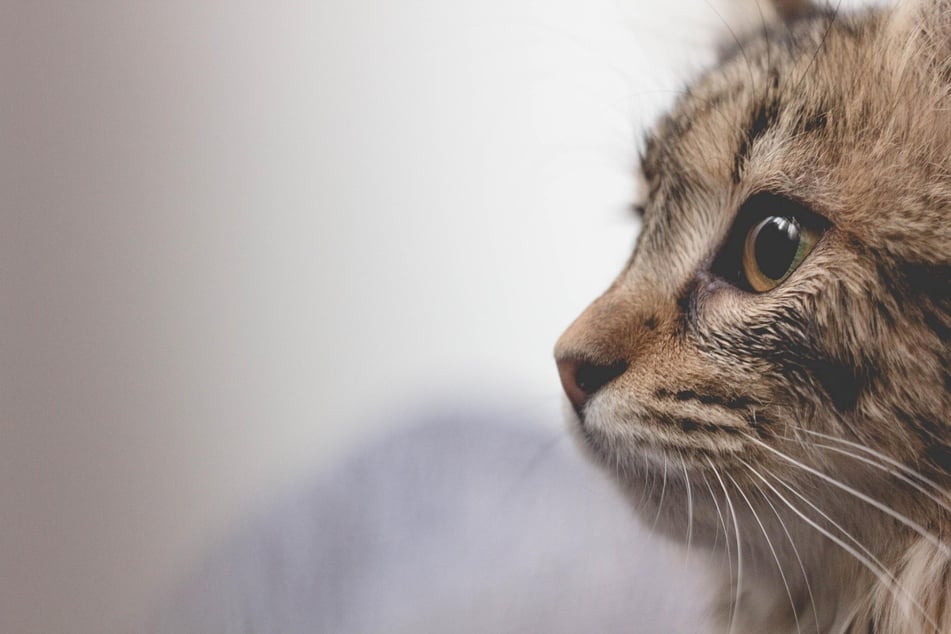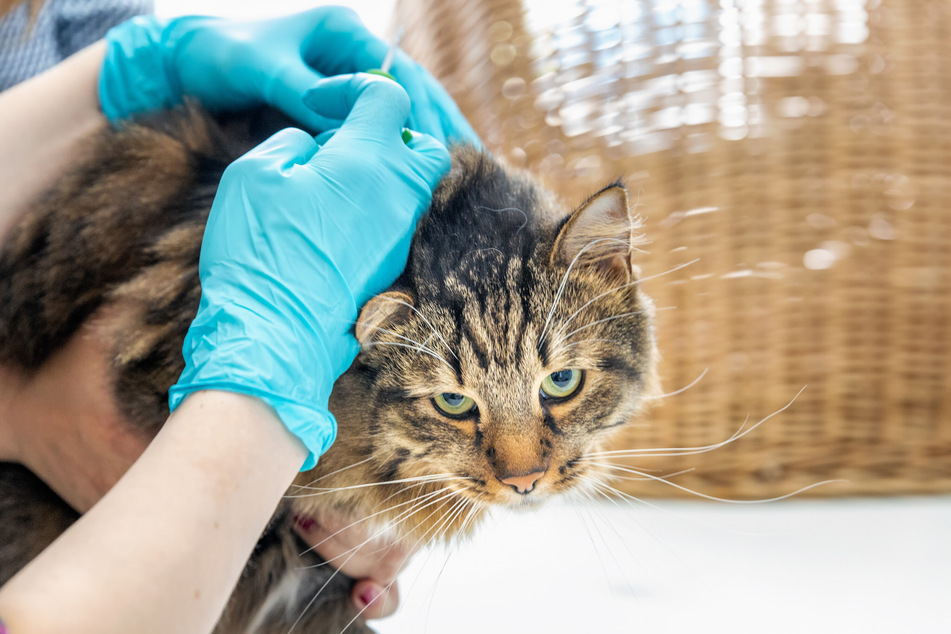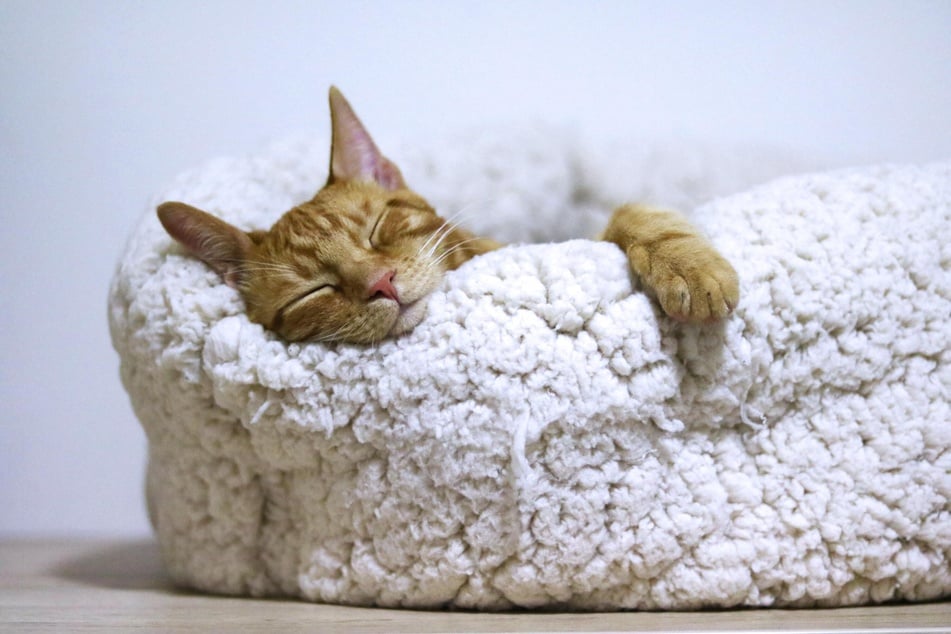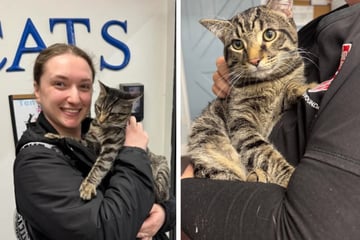Neutering a cat: The procedure, cost, benefits, and everything to know about spaying
Neutering cats is a routine procedure for most cat owners, and in many places, it's actually a necessity. What is neutering, though, and what are the effects? Let's take a look.

It's important to get your cat neutered if you want to avoid unwanted kittens.
That being said, what is the process like, and how will it change the behavior of your beloved feline friend?
There are a few advantages and disadvantages to the procedure, so it's worth being armed with information beforehand.
In this cat guide, TAG24 will take a look at the process of neutering a cat. Is it good to neuter your cat, what do you need to do for aftercare, and what are some of the side effects?
Let's dive in!
What is cat neutering?
Cat neutering refers to the deliberate de-sexing of our feline friends, making them incapable of reproduction.
These little furry creatures generally reach sexual maturity at around 4–5 months of age, beginning to regularly go into heat and sometimes, causing them to behave horribly.
The idea of neutering your cat is meant to offset some naughty behavior (brought on through hormonal discomfort) and completely remove the possibility that you will end up looking after a litter of kittens.
In many residential neighborhoods, it is actually compulsory, but can be a somewhat traumatic process.
How does cat neutering work?
Neutering is a medical procedure that has now become standard practice for most veterinarians. If you want to get your cat neutered, there are a number of different steps that you need to follow:
How to get your cat neutered:
- Step 1: Make an appointment with your veterinarian
- Step 2: Have a preliminary examination with your cat at the vet
- Step 3: Prepare your cat for the actual neutering by not allowing them to eat for 24 hours before the surgery. On top of that, your cat shouldn't drink the morning before.
- Step 4: Look after your cat once the procedure is over, as it can be quite uncomfortable and traumatic.
Important: Individual animals will require different types of care, so contact your veterinarian and have them help make the decision based on your kitty specifically.
Male cat neutering
Male cats are the easier gender to neuter than females. The cat's testicles are removed, so that they can no longer produce sex hormones or reproduce.
Once neutered, the cat will heal quite quickly and be almost "back to normal" within a day or two. Overall though, it's quicker and easier to neuter a male cat.
Female spaying
Cat castration becomes more difficult when it's a female, and the process for females is often called "spaying" rather than neutering. Yet, it is the same operation.
During the ovariohysterectomy procedure, the ovaries are removed from the cat. This stops them from being able to produce sex hormones or become pregnant.
Afterward, a spayed female cat should be kept inside for at least a week, so that she can heal from the operation.
Another option: In some cases, cat "castration" chips are embedded under their skin. This chip is designed to change their hormonal patterns and basically do the same thing as a standard neutering. Ask your veterinarian about the specifics if you want to learn more.

Cat neutering aftercare
It is recommended that a neck-brace or bodysuit is worn by a cat for the first week or so after its neutering. This will stop them from licking or biting their wound, which could cause inflammation or infection. On top of this, there are a couple of steps that you should take to guarantee your cat's health.
Here's how to look after a newly-neutered cat:
- Reduce water drinking levels for the first 24 hours, to limit vomiting
- Keep their litter box close-by at all times
- Make sure that they have an extremely comfortable spot to sleep in
- Don't let your cat go outside for a while
- If you live in a multi-story house, limit the cat's movement to one story and don't let it go up or down the stairs
It will take at least a week for your cat to be fully recovered, so just make sure that it is always monitored, looked after, and that you take it to the vet if there are any complications.
How much does cat neutering cost?
As with most things cat-ownership-based, neutering is not a cheap endeavor.
That being said, it is a necessary expense that you should incorporate into the price of adoption. Male and female cats can also vary in cost for the procedure, with female spaying often costing more than the procedure does for males.
In general, you will find that having a female cat neutered will generally cost between $300 to $500, as opposed to around $200 for males. Remember, though, that there are lower-cost clinics, and you can check with your pet insurance to see if they will cover the procedure.
Side effects of neutering a cat

The body of your cat will change after castration, due to a lack of the hormones that their neutered parts produced. This change may take shape in regard to their personality and nature, and their appetite. Here's how those changes take form.
Personality and nature
Cats will often become much calmer once they have been sterilized. Their sexual drive will cease, their aggression towards each other will decrease (but may not be eliminated), and they will be less likely to take potentially harmful risks.
This last point is, in part, because cats may somewhat reduce what they feel is their territory once they have been neutered, and likely won't travel as far.
Keep in mind: Male cats will still tend to be dominant after neutering, especially when it comes to territorial disputes, although lesser.
Appetite
Neutered cats will often have a much larger appetite than before. This is usually because their hormones won't consume as much energy as they used to. As a result, owners should pay special attention to keeping their diet sufficient, healthy, and advised by their veterinarian.
Neutering cat benefits
Neutering is mandatory in many areas of the world, and for good reason, as there are a variety of benefits that come from this practice. Please note that not all of these benefits are guaranteed after neutering, and cat behavior is a case-by-case basis.
Advantages of cat neutering include:
- Induced infertility
- Cats will not go into heat
- No accidental pregnancies
- Prevention of disease due to eliminated sexual activity
- Marking territory will become reduced or stopped entirely
- Urination will become less frequent
- Male cats in particular behave much better
- Lower accident risk for slightly less mischevious kitties
To note: Neutering will not entirely eliminate the possibility of diseases, territorial fights, or accidents. It will just reduce the likelihood and regularity.
Neutering cat disadvantages
Neutering, like any medical procedure, has its set-backs and risks. For starters, the activity will seriously change your cat's metabolism, and this will have a very real impact.
Here are a few neutering cat disadvantages:
- They will have a different balance of energy. Specifically, neutered cats have less energy than non-neutered cats.
- It is very likely that your cat will gain weight after the procedure.
Super-duper important: As a result of these disadvantages, it is important that a cat owner follows their vet's advice after the procedure, adapts their kitty's diet, and increases their play and exercise time.

What to expect after neutering a cat
After having the neutering procedure done at the vet's office, you will likely be able to pick up your kitty the same day.
They may be quite distressed and rather sensitive to their environment, especially having come out of anesthesia. When at home, it is a good idea to allow them to sleep as much as possible in a quiet, slightly dark, and warm space.
Here's what you should do to take care of your newly-neutered cat:
- Choose a sleeping spot that's safe and on the ground level of your home (if it is a multi-story dwelling) and allow your cat to come out from under anesthesia in peace.
- Make sure to keep them from jumping as much as possible over the next few days. As a result, remove any scratching posts, try to keep shelves inaccessible, and keep a watchful eye on your cat.
- Owners should not lift or move their pet for the couple of days after the procedure, as they could accidentally open the wound.
- Water and food should be made easily accessible, so that your cat can eat or drink whenever possible.
- Other pets should be kept separate for the time being, as they won't understand what's going on and could cause injuries to freshly neutered cats
- They should not be allowed outside.
After ten days, the wound should be healed, and your cat will be able to resume normal habits. There is one caveat though: vets advise that your kitty should be cleared by their doctor before allowing it outside.
Does neutering a cat stop spraying?
Most cats, but not all, will stop urinating to mark their spot when they have been neutered. Now, this will not stop your cat from marking its territory completely, but purely from spraying out of sexual frustration and instinct. They may also do something called "reactionary" spraying, which occurs when a cat is anxious or is experiencing changes in its environment.
It is important to neuter your cats
One of the most important things you should do when getting a cat is to check whether it's neutered, and then to check whether you are legally required to get the procedure done in your residential area.
Either way, experts agree it is usually a good idea to go ahead with the procedure. It usually prevents excessive litters of kitties and can help your cat's behavior overall.
Talk to your vet about neutering or spaying your kitty, and they will likely be just fine!
Cover photo: Unsplash / Borna Bevanda





